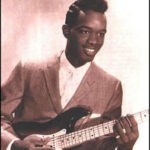It’s a fact that when you think of iconic guitar players, Brian May of Queen immediately springs to mind. Synonymous with anthems like “We Will Rock You” and “Bohemian Rhapsody,” May isn’t just a Guitar Player Queen fans adore; he’s also a Doctor of Astrophysics. This incredible fusion of rock royalty and scientific expertise isn’t just a meme – it’s reality.
Brian May’s musical journey with Queen is legendary. As the lead guitarist, he penned some of the band’s most enduring hits, including “Fat Bottomed Girls,” “Save Me,” and the powerful “The Show Must Go On.” His distinctive guitar riffs and harmonies are instantly recognizable, cementing his status as a guitar player queen and music history celebrate.
But beyond the stage lights and roaring crowds, May harbored a passion for the cosmos. Before Queen’s meteoric rise to fame, he was deeply immersed in his PhD studies in astrophysics at Imperial College London. Life took a detour with the band’s success, but his scientific aspirations remained.
In a remarkable return to academia, May revisited his doctoral thesis after more than three decades. In 2007, he successfully earned his PhD in astrophysics, proving that his intellectual prowess extends far beyond his musical genius. This dedication highlights not just his intelligence, but his unwavering commitment to both his passions.
His dual expertise came into sharp focus when May visited the NASA New Horizons team during the Pluto fly-by mission. Invited as a science collaborator by principal investigator Alan Stern, May contributed his unique perspective to the analysis of Pluto’s imagery. He even documented his experience on his website, expressing his excitement at the stereoscopic opportunities presented by the mission’s data.
Brian May’s story is a testament to multifaceted talent and the pursuit of knowledge across disciplines. He embodies the extraordinary intersection of art and science, proving that you can be a world-renowned guitar player queen and a respected astrophysicist simultaneously. His journey inspires fans to explore their diverse interests and demonstrates that passion and dedication can lead to remarkable achievements in seemingly disparate fields. He truly is a rock star in every sense of the word, both on stage and in the scientific community.

